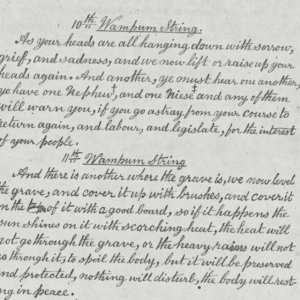
On Monday, parents who stood all night to keep watch outside the accused’s home gathered at the Six Nations Elected Council chambers to get a briefing by Six Nations Police Chief Glenn Lickers.
Tensions were high, the fear and grief of the parents present in the room were tangible. It was evident people were worried for the safety of their children — both angry at police that it’s taken so long to take action against drug houses and worried about what’s going to happen next. There is possibly nothing more triggering to parents than the thought that they may be unable to protect their children.
Two journalists with the Turtle Island News (“T.I.N.”), Jim Powless and Chris Pimentel, were also present at that meeting. Powless was live broadcasting the meeting to the Turtle Island News Facebook page.
When Six Nations Police Glenn Lickers arrived and began his briefing, that journalist was asked by parents and council members to stop live streaming due to the sensitivity of the information in the case.
T.I.N. writer Pimentel objected to that request and insisted that Powless was “fine”. Parents in the room loudly objected to that comment and members of the Elected Council then asked Powless to stop live streaming.
Powless initially complied with that request and left the room. Lickers then requested media to be cautious of the information they share with the public at this time so as to not jeopardize the ongoing police investigation.
A few minutes later, Powless returned and began filming again.
Six Nations Elected Councillor Mark Hill reminded Powless live streaming of the meeting was not permitted. Again, he stopped. And was then asked to leave the council chambers. He did.
The meeting again carried on but a few minutes later Turtle Island News publisher Lynda Powless arrived and began live streaming again and the meeting was halted for the third time that morning.
Six Nations Elected Councillor Mark Hill addressed Powless and told her that the community members present did not want the meeting broadcast. Powless insisted she be permitted to continue. Parents were outraged and shouted at her to leave.
Sparing further exhaustive details of the entire charade, Powless’ objection turned into a verbal altercation between herself and angered parents. In the end, parents demanded Powless be removed from the council chambers.
Powless continued to engage in arguments, attempting to defend the freedom of the press. In the end, two Six Nations Police officers removed Powless from the Six Nations Elected Council Administration Building completely.
As journalists, we have to constantly be on guard to two realities — our work and our humanity. It is our job to keep politicians honest and inform the public of what is happening. But there comes a time, especially in the indigenous community, when honouring people comes first.
In a community that is so historically wounded from the residential school experience — it should be a given that protecting a child’s identity and ensuring their safety is always over and above getting the story out there first.
Ethical standards are in place by the Canadian Association of Journalists. One of the declarations says journalists are to “take special care when reporting on children”. It goes on to clarify that “when dealing with particularly sensitive subjects, we err on the side of seeking parental consent”. That consent was clearly not given by parents in Monday’s meeting.
To be clear, the freedom of the press does not, and never should, come over and above the rights of a parent to protect the safety or identity of their children.






